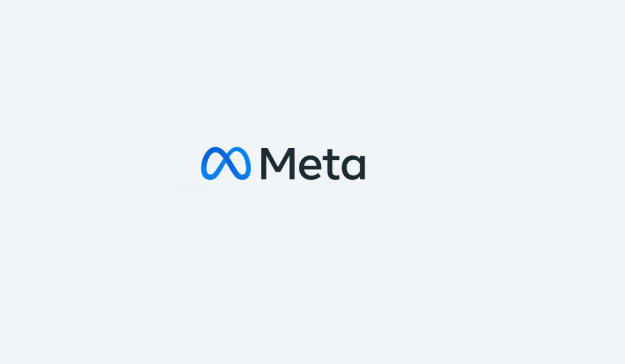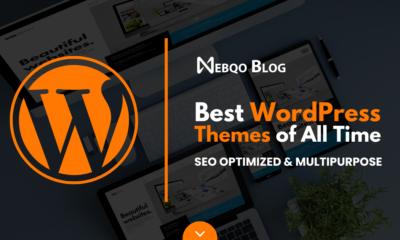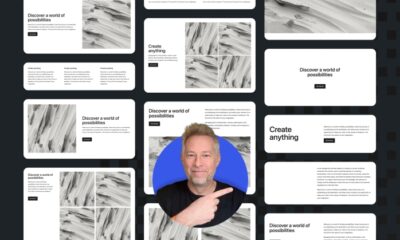SOCIAL
Meta Threatens to Ban News Publishers Amid Debate Over New Revenue Share Proposal

As Meta continues to lean further into AI-based content recommendations to keep users engaged in its apps, you know what it doesn’t need anywhere near as much as it used to? News content.
Meta has made this much clear, by ending its content deals with publishers, cutting its investment into news initiatives like its dedicated News Tab, Instant Articles and newsletters, and even directly noting that it’s de-prioritizing political news in-stream.
Which is why the latest push in the US to force Meta to pay more to news publishers seems particularly ill-timed.
This week, reports have suggested that the controversial ‘Journalism Competition and Preservation Act (JCPA) has been added to the annual defense authorization bill, which could see it carried into law in the new year.
The JCPA would facilitate an exemption under US antitrust law that would enable US news outlets to collectively bargain with social media platforms in order to negotiate a larger share of ad revenue, in exchange for the use of their content – i.e. it would force Meta to pay for links to news content in its apps.
Which is now, and always has been a controversial policy approach. But with the Australian Treasury Department recently reporting that its similar Media Bargaining Code has been a success, and has re-directed millions into the local media market, other nations are now taking a closer look – with New Zealand now also considering its own Media Bargaining Code along similar lines.
But again, Meta probably doesn’t need news like it used to anymore, and it could cut it off entirely in response. Which is exactly what Meta has threatened to do.
As per Meta:
“If Congress passes an ill-considered journalism bill as part of national security legislation, we will be forced to consider removing news from our platform altogether rather than submit to government-mandated negotiations that unfairly disregard any value we provide to news outlets through increased traffic and subscriptions.”
Now, there’s a level of posturing here, and it seems unlikely that Meta would remove news content entirely. But that is what it did in Australia last year, amid negotiations over the media Bargaining bill.
At the same time, Australia’s media ecosphere is far smaller than the US. Would Meta really move to block all US news organizations from sharing content in its apps – and if it did, what would that mean for engagement and interaction in each?
This is the key point of the debate. On one side, media organizations argue that Meta generates a heap of engagement off the back of its reporting, which then constitutes a significant chunk of its revenue, because more users engaging more often means more ads, etc.
But Meta says that news content isn’t as big a deal to it as publishers seem to think – and as Meta notes, it views this as a more reciprocal relationship, where publishers use its apps to maximize reach, which in-turn helps them drive their business.
And again, Meta has been distancing itself from news content more and more over time, and leaning into a more TikTok-like approach of showing users video clips and entertaining posts, based on AI-fueled recommendations for each user.
Given this, could Meta now be in a position to actually cut off news publishers entirely, without impacting its revenue performance?
You can bet that, with Meta announcing major cutbacks, it’s not going to be giving up any revenue easily.
It’s early days, but this could be one to watch, as Meta potentially heads for a stand-off with publishers, in several regions, in the new year.
SOCIAL
Snapchat Explores New Messaging Retention Feature: A Game-Changer or Risky Move?

In a recent announcement, Snapchat revealed a groundbreaking update that challenges its traditional design ethos. The platform is experimenting with an option that allows users to defy the 24-hour auto-delete rule, a feature synonymous with Snapchat’s ephemeral messaging model.
The proposed change aims to introduce a “Never delete” option in messaging retention settings, aligning Snapchat more closely with conventional messaging apps. While this move may blur Snapchat’s distinctive selling point, Snap appears convinced of its necessity.
According to Snap, the decision stems from user feedback and a commitment to innovation based on user needs. The company aims to provide greater flexibility and control over conversations, catering to the preferences of its community.
Currently undergoing trials in select markets, the new feature empowers users to adjust retention settings on a conversation-by-conversation basis. Flexibility remains paramount, with participants able to modify settings within chats and receive in-chat notifications to ensure transparency.
Snapchat underscores that the default auto-delete feature will persist, reinforcing its design philosophy centered on ephemerality. However, with the app gaining traction as a primary messaging platform, the option offers users a means to preserve longer chat histories.
The update marks a pivotal moment for Snapchat, renowned for its disappearing message premise, especially popular among younger demographics. Retaining this focus has been pivotal to Snapchat’s identity, but the shift suggests a broader strategy aimed at diversifying its user base.
This strategy may appeal particularly to older demographics, potentially extending Snapchat’s relevance as users age. By emulating features of conventional messaging platforms, Snapchat seeks to enhance its appeal and broaden its reach.
Yet, the introduction of message retention poses questions about Snapchat’s uniqueness. While addressing user demands, the risk of diluting Snapchat’s distinctiveness looms large.
As Snapchat ventures into uncharted territory, the outcome of this experiment remains uncertain. Will message retention propel Snapchat to new heights, or will it compromise the platform’s uniqueness?
Only time will tell.
SOCIAL
Catering to specific audience boosts your business, says accountant turned coach

While it is tempting to try to appeal to a broad audience, the founder of alcohol-free coaching service Just the Tonic, Sandra Parker, believes the best thing you can do for your business is focus on your niche. Here’s how she did just that.
When running a business, reaching out to as many clients as possible can be tempting. But it also risks making your marketing “too generic,” warns Sandra Parker, the founder of Just The Tonic Coaching.
“From the very start of my business, I knew exactly who I could help and who I couldn’t,” Parker told My Biggest Lessons.
Parker struggled with alcohol dependence as a young professional. Today, her business targets high-achieving individuals who face challenges similar to those she had early in her career.
“I understand their frustrations, I understand their fears, and I understand their coping mechanisms and the stories they’re telling themselves,” Parker said. “Because of that, I’m able to market very effectively, to speak in a language that they understand, and am able to reach them.”Â
“I believe that it’s really important that you know exactly who your customer or your client is, and you target them, and you resist the temptation to make your marketing too generic to try and reach everyone,” she explained.
“If you speak specifically to your target clients, you will reach them, and I believe that’s the way that you’re going to be more successful.
Watch the video for more of Sandra Parker’s biggest lessons.
SOCIAL
Instagram Tests Live-Stream Games to Enhance Engagement

Instagram’s testing out some new options to help spice up your live-streams in the app, with some live broadcasters now able to select a game that they can play with viewers in-stream.
As you can see in these example screens, posted by Ahmed Ghanem, some creators now have the option to play either “This or That”, a question and answer prompt that you can share with your viewers, or “Trivia”, to generate more engagement within your IG live-streams.
That could be a simple way to spark more conversation and interaction, which could then lead into further engagement opportunities from your live audience.
Meta’s been exploring more ways to make live-streaming a bigger consideration for IG creators, with a view to live-streams potentially catching on with more users.
That includes the gradual expansion of its “Stars” live-stream donation program, giving more creators in more regions a means to accept donations from live-stream viewers, while back in December, Instagram also added some new options to make it easier to go live using third-party tools via desktop PCs.
Live streaming has been a major shift in China, where shopping live-streams, in particular, have led to massive opportunities for streaming platforms. They haven’t caught on in the same way in Western regions, but as TikTok and YouTube look to push live-stream adoption, there is still a chance that they will become a much bigger element in future.
Which is why IG is also trying to stay in touch, and add more ways for its creators to engage via streams. Live-stream games is another element within this, which could make this a better community-building, and potentially sales-driving option.
We’ve asked Instagram for more information on this test, and we’ll update this post if/when we hear back.
-
SEARCHENGINES5 days ago
Daily Search Forum Recap: April 29, 2024
-

 MARKETING7 days ago
MARKETING7 days agoMicrosoft unveils a new small language model
-

 SEARCHENGINES7 days ago
SEARCHENGINES7 days agoOffline For Last Days Of Passover 5784
-

 MARKETING6 days ago
MARKETING6 days agoQuiet Quitting vs. Setting Healthy Boundaries: Where’s The Line?
-
SEARCHENGINES4 days ago
Daily Search Forum Recap: April 30, 2024
-

 PPC6 days ago
PPC6 days agoHow to Promote Your Digital Marketing Agency: 4 Growth Strategies
-

 MARKETING4 days ago
MARKETING4 days agoHow To Develop a Great Creative Brief and Get On-Target Content
-

 WORDPRESS6 days ago
WORDPRESS6 days agoBest WordPress Themes of All Time: Improve your Website SEO
















You must be logged in to post a comment Login